I have repeatedly argued that Australia’s universities have devolved into greedy profit-maximising corporations that do not pay taxes.
To summarise, the federal government and Australian universities developed a framework to encourage large numbers of full-fee-paying international students by:
- The Australian government dangled the carrot of generous student visa work rights and prospects for permanent residency.
- Australian universities have lowered entry and teaching standards.
The cash bonanza from increased international student numbers was spent on research geared purely at driving Australian universities up the world rankings rather than areas that benefited Australians.
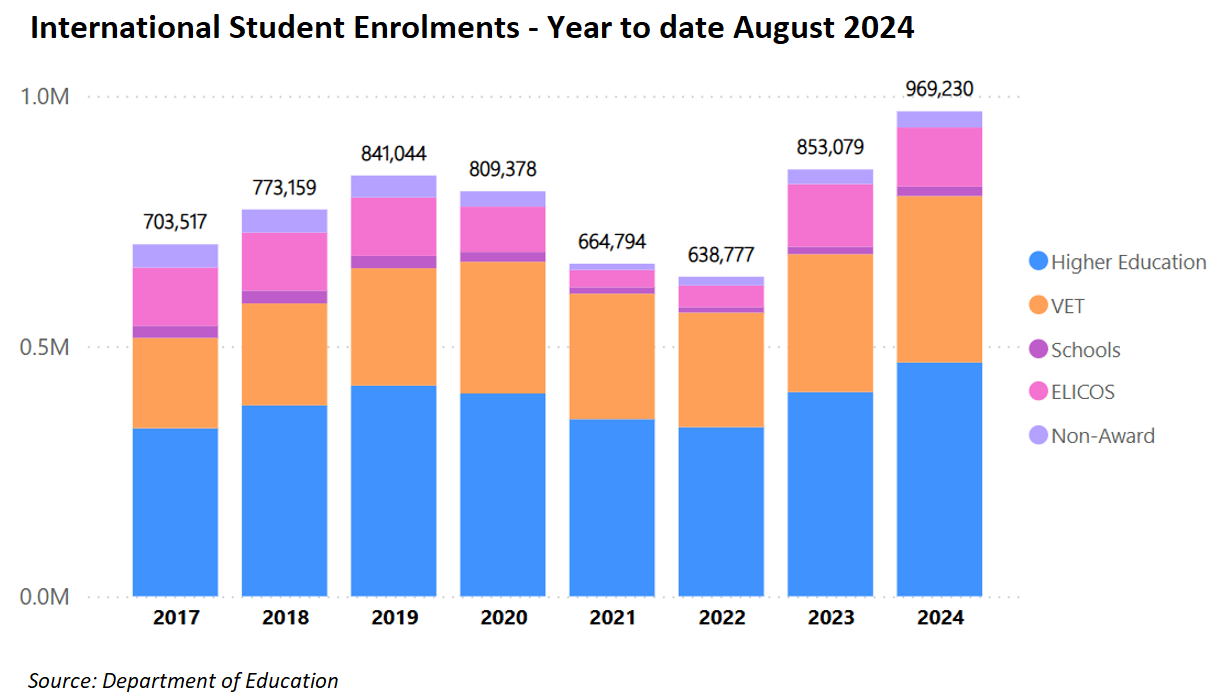
Because a better global rating improves a university’s reputation and indicates quality, universities utilise these rankings as a marketing tool to entice more international enrolment while justifying higher tuition prices.
It is an incredible Ponzi scheme for Australian institutions. 1) Bring in planeloads of international students. 2) Use a chunk of the fee revenue for research. 3) Achieve a high global ranking; 4) Sell to more overseas students. 5. Rinse and repeat.
Meanwhile, Australia’s million-dollar university vice-chancellors and greedy administrators treat students like cattle, cramming them into overcrowded classrooms and delivering generic, cookie-cutter courses.
Domestic students have also been required to assist non-English-speaking students in completing their courses via group projects.
Local students are regularly paired with international students, resulting in domestic students doing most of the work, effectively acting as unpaid tutors and cross-subsidising international students’ grades.
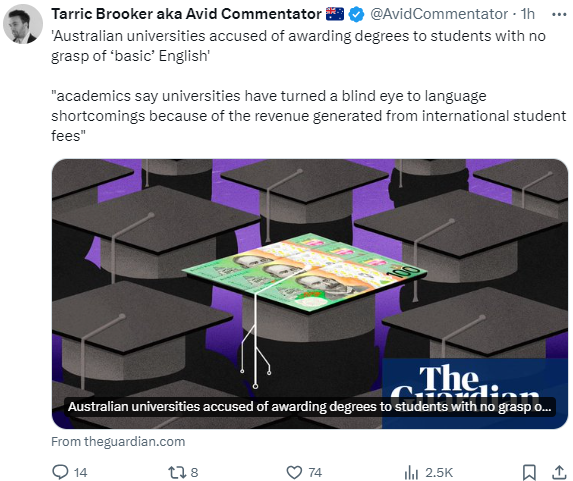
Cheating among international students is rampant.
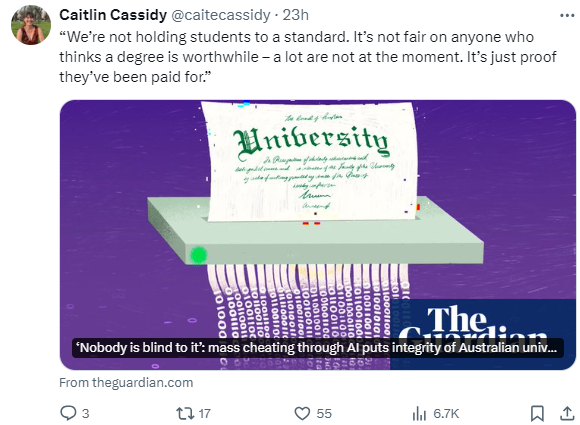
Some tutorials have even been conducted in foreign languages, wrecking the experience for local students.
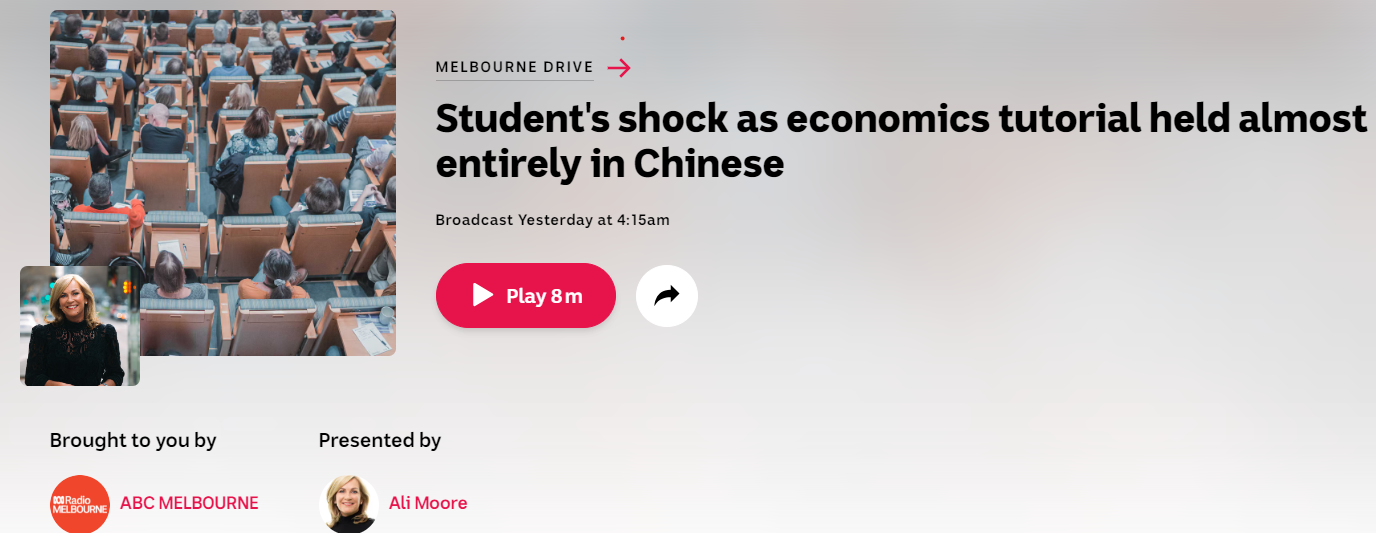
In essence, universities and colleges are privatising the benefits of record-high student enrolments, while Australians—particularly local students and renters seeking housing—bear the burden.
Data released in May revealed that over half of Victoria’s vice-chancellors earned more than $1 million in annual salaries.
Six of the eight vice-chancellors also had their salaries boosted last year, including separate rises of more than $50,000.
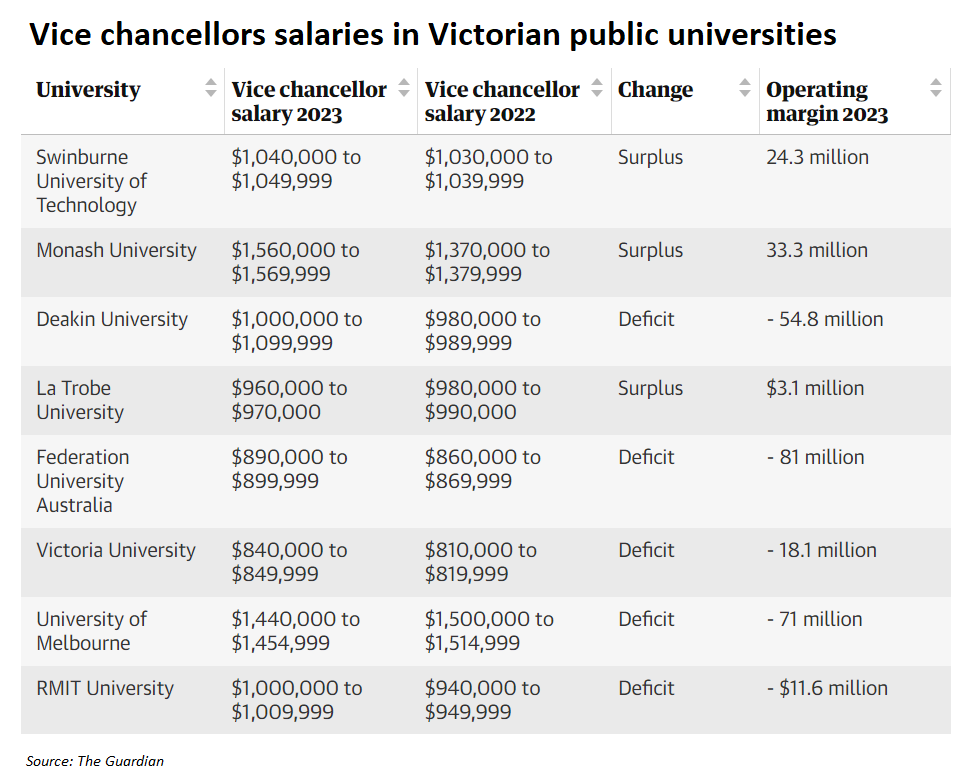
This week, the Guardian reported that more than 300 Australian university executives earn more money than state premiers:
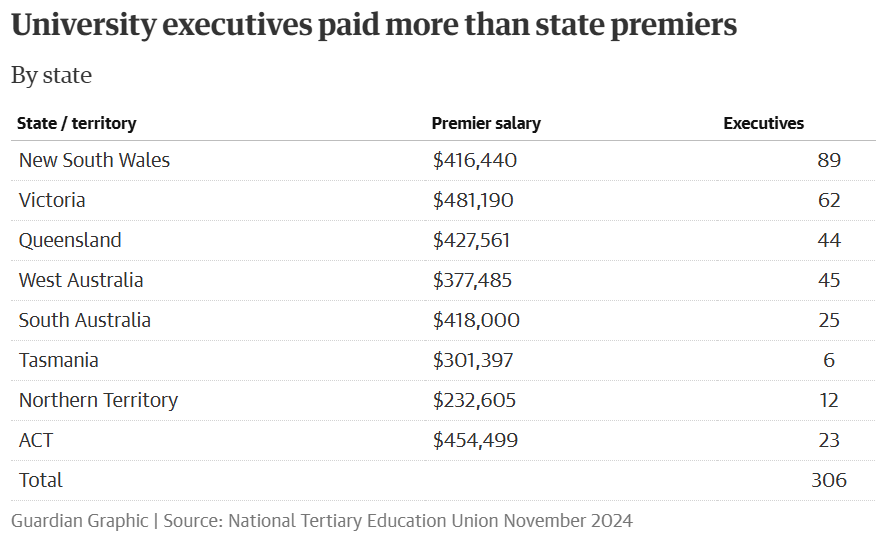
Dr Alison Barnes, the NTEU national president, said the report reflected a “deep governance crisis” threatening universities and pointed to the need for an urgent federal parliamentary inquiry.
“There are more than 300 senior university executives getting paid more than their state premier,” she said. “The average vice-chancellor gets paid almost double what the prime minister takes home.
“University councils stacked with corporate appointees have failed to justify these salaries, undermining the credibility of our institutions.”
Of 545 positions on university governing bodies, just 137 were elected by staff, students and graduates, the report found, while 143 were corporate executives or consultants from for-profit organisations.
Half of the people occupying university governing councils were from the Big Four accounting firms and business groups, with some governing councils harbouring more executives from finance or mining than current academic practitioners.
The rise of prominent business appointees on university boards coincides with an explosion in insecure work, wage theft, and poor governance, according to the NTEU.
The NTEU’s findings echo comments from the Fair Work Ombudsman, which identified universities as a “regulatory priority”, finding “entrenched non-compliance” in the higher education sector and “trends of poor governance and management oversight”.
Universities, not taxpayers, are ‘clipping the ticket’ and collecting substantial economic rents from Australia’s immigration system through student fees.
Running low-quality student visa mills with high throughput was never in the national interest.
Nonetheless, Australia has built a system that rewards university executives with jumbo salaries for effectively transforming their universities into low-quality, high-volume immigration operations.
Rather than continually lowering standards to lure more international students of doubtful quality to Australia, governments should aim to recruit a much smaller pool of excellent (genuine) students.
This could be achieved through the following types of reforms:
- Significantly tightening English-language standards and requiring prospective students to complete entrance examinations before being permitted to study in Australia.
- Significantly increasing financial requirements, with funds paid into an escrow account before arriving in Australia.
- Reducing the number of hours that international students are allowed to work and severing the direct link between study, work, and permanent residency.
- Only allowing top-of-class graduates to receive graduate visas.
- Given that Australian universities are non-profit entities that currently do not pay taxes, imposing a levy on international students to ensure that Australians receive a financial cut from the trade.
Universities should also be required to provide on-campus housing for international students in proportion to the number of enrolments to reduce pressure on the private rental market.
Australia’s international education sector must aim for quality over quantity.

